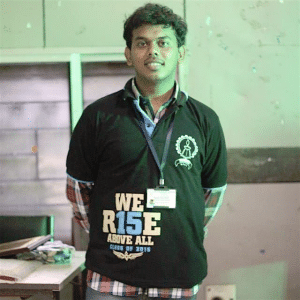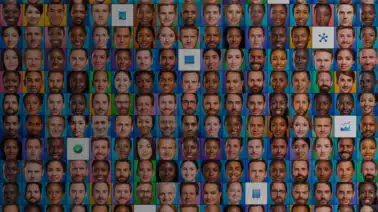Soumya Ranjan Mohanty was an engineering student from Orissa, India, when the first MOOC was broadcast from Stanford in 2011. He couldn’t know it then, but this would prove to be a pivotal moment in his life.
A student of a government college in India, Soumya says, “The teaching infrastructure and faculty in my college weren’t very good, and students were always on the the lookout for avenues to skill up.”
This is Soumya’s story, of how he went from being a “regular” engineering graduate to doing innovative work in data science, with the help of Udacity’s Data Analyst Nanodegree program.
Seeking More Challenging Opportunities
Like many other Indian engineering graduates, Soumya got a job placement at an IT services company. He could certainly have settled into the role for the long-term, but his zeal for problem solving kept him on the lookout for more challenging work. “I was really interested in the field of data science and I was looking for other opportunities.” The growing presence of high-quality online education represented just such an opportunity.
“I had been following MOOCs since the first one by Sebastian Thrun on AI, and I had taken a lot of MOOCs while at college. Even now, there are so many people in my college who are taking up MOOCs to skill up. During an internship, I was introduced to data science and around the same time, Udacity launched its Data Analyst Nanodegree program.”
These simultaneous developments would change Soumya’s path significantly.
The Udacity Nanodegree Advantage
The Udacity Data Analyst Nanodegree program covers topics such as statistics, machine learning, data wrangling and data visualisation. It generally takes 8-12 months to complete. Soumya, however, finished it in just four months. He says, “Between graduating from college and starting my job, I had a lot of time on my hands. I thought I could finish it in 3 months. But work started by then, so I had to take an extra month to do it.”
Soumya now works for Gramener, one of India’s leading data visualisation startups. He credits Udacity’s Nanodegree program with helping him land the job.
“When I was applying for jobs before the Nanodegree program, I usually got no responses as there wasn’t any relevant work experience in my application. That changed after I earned my Data Analyst Nanodegree credential. The projects I worked on really helped me to build a strong resume, and the response I received after that was very good.”
The company is engaged in a number of fascinating projects, including data visualisation projects for the government of India. (Check it out here)
Investing in Learning
Soumya knows that pursuing a Nanodegree credential represents a number of challenges for people, including a financial one. “I have encouraged a lot of my friends—many of whom are still in college—to enroll at Udacity. Some say that it is a little expensive, but I think the fact that I had paid money to enroll actually drove me to complete my program faster.”
As parting advice, Soumya shares what he thinks it takes to be a Nanodegree program graduate: “It takes discipline and consistency.”
Think you have it? Then the Data Analyst Nanodegree program is for you.




